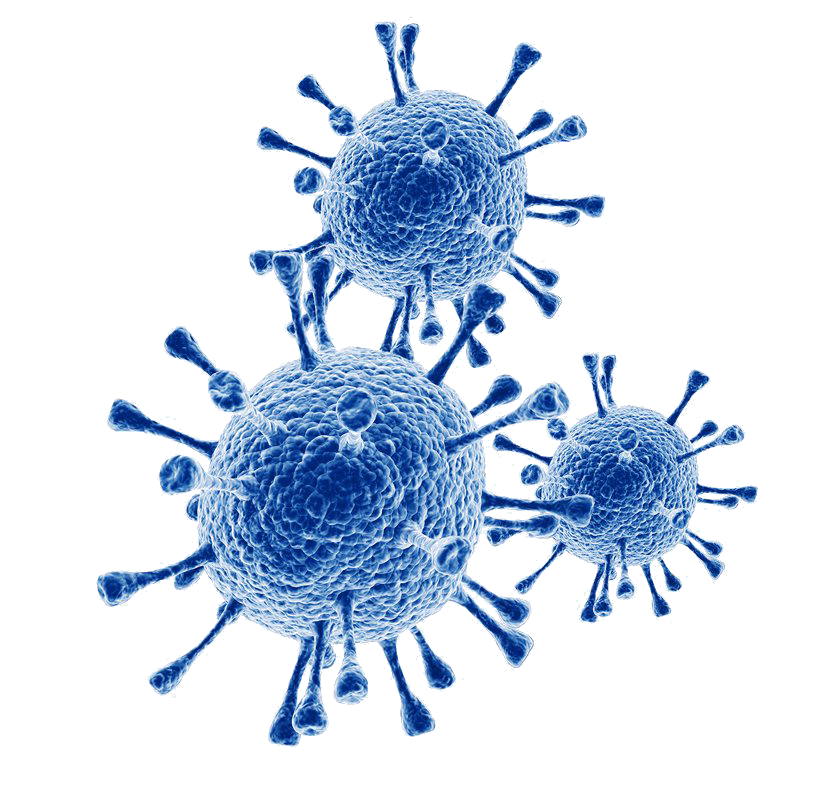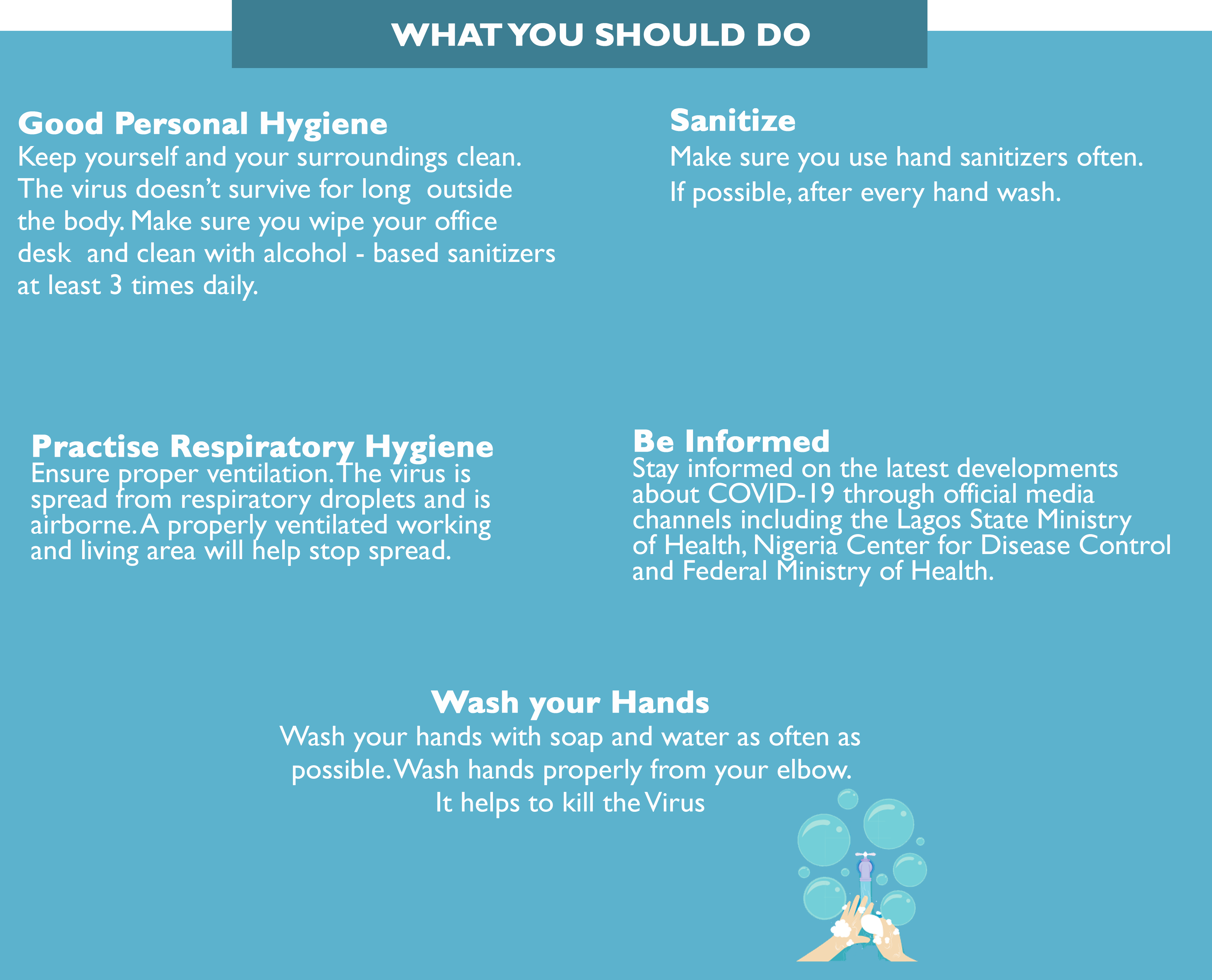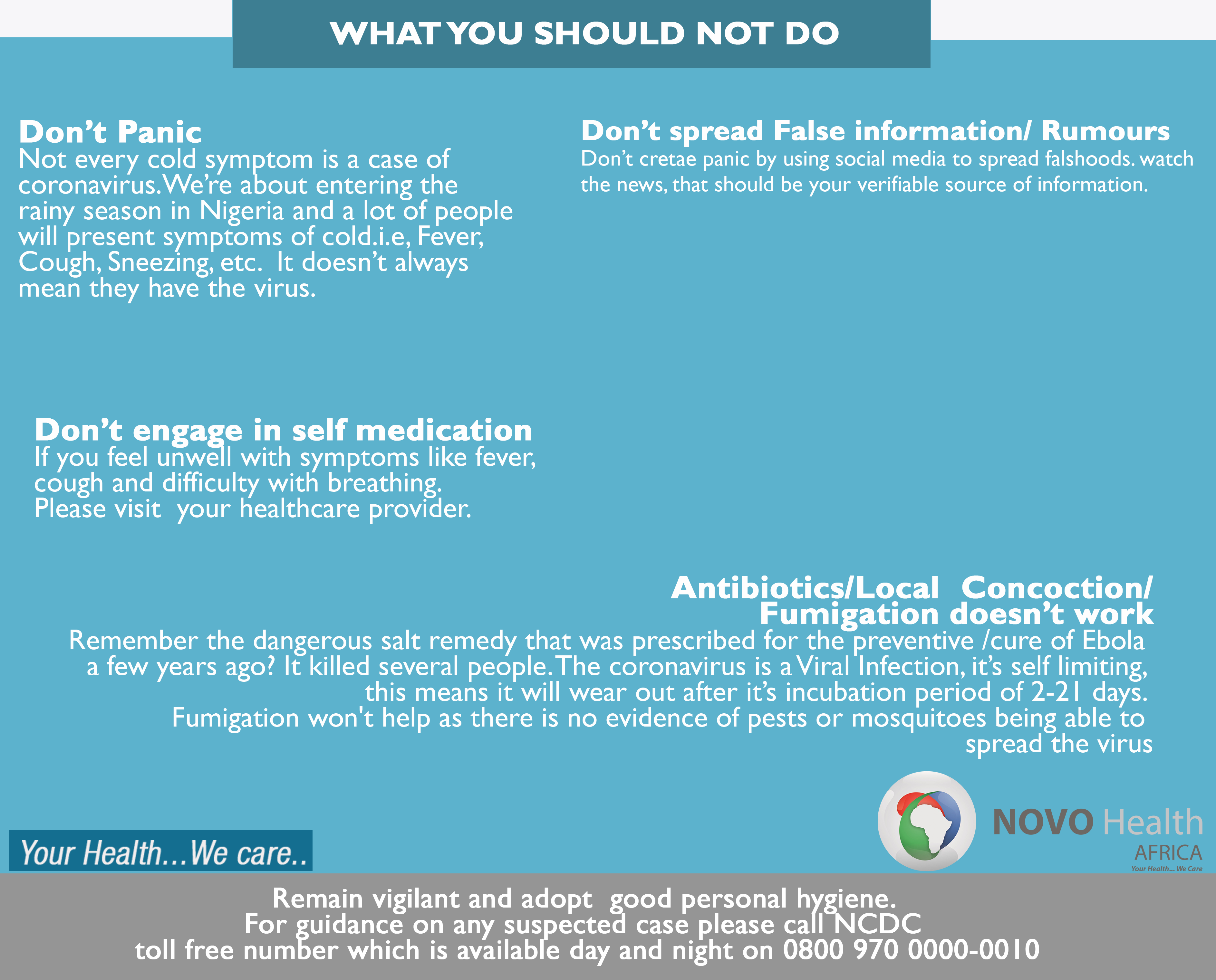COVID-19: A NIGERIAN SURVIVORS STORY

Coronavirus disease (COVID-19) is an infectious disease caused by a new virus.
The disease causes respiratory illness (like the flu) with symptoms such as a cough, fever, and in more severe cases, difficulty breathing. You can protect yourself by washing your hands frequently, avoiding touching your face, and avoiding close contact (1 meter or 3 feet) with people who are unwell.
Coronaviruses are a family of viruses that cause disease in animals. Seven, including the new virus, have made the jump to humans, but most just cause cold-like symptoms.
Two other coronaviruses – Middle East respiratory syndrome (Mers) and severe acute respiratory syndrome (Sars) – are much more severe, having killed more than 1,500 people between them since 2002.
The new virus, officially called Covid-19, is also dangerous - so far, around 20 per cent of confirmed cases have been classed as severe or critical. So far, around 15 to 20 per cent of hospital cases have been classed as "severe" and the current death rate varies between 0.7 per cent and 3.4 per cent depending on the location and, crucially, access to good hospital care.
What that means for you?,
The rapid spread of the novel coronavirus has sparked major news outlets to call it a pandemic, and scientists are saying so, too. Now, the World Health Organization (WHO) is saying that COVID-19 is a pandemic.
The effects of coronavirus across the world are unprecedented. It has entire countries on lockdown, cruise ships quarantining passengers and crew members, and major tech companies calling off events and instructing employees to work from home.
But what does it really mean if coronavirus is labelled as a pandemic, and how does that actually affect you? Here, learn the stance of the WHO on coronavirus as a potential pandemic, and what it means for you now that COVID-19 has been declared one.
According to the WHO, a pandemic is "an epidemic occurring worldwide, or over a very wide area, crossing international boundaries and usually affecting a large number of people."
The WHO also has a defined set of phases that describe different levels of a pandemic, from one to six, which the agency previously used for the 2009-2010 H1N1 swine flu:
Phase 1: No animal viruses circulating have been reported to cause infection in humans.
Phase 2: An animal virus in domestic or wild animals has been reported to cause infection in humans.
Phase 3: An animal or human-animal virus has caused "sporadic cases or small clusters of disease in people." Limited human-to-human transmission may occur in certain circumstances.
Phase 4: sustained human-to-human spread and community outbreaks.
Phase 5: human-to-human transmission in at least two countries within a single WHO region.
Phase 6: The actual pandemic phase, wherein there is human-to-human spread in at least one country outside of the two in the initial infected WHO region.
Pandemic vs. Epidemic
"An epidemic is uncontrollable transmission of a disease, and a pandemic is when this occurs throughout the world,"
There are actually two stages of disease that come before an epidemic:
An endemic occurs when a relatively stable number of people become infected with a disease in a particular locale (example: malaria in Africa).
An outbreak occurs when an infection shows up in an unexpected location or there is an unexpected increase in the infected population of a disease (example: Ebola, at various points in time).
What does it mean that this coronavirus a pandemic?
Just using the word "pandemic" in place of "outbreak" or "epidemic" shouldn't add extra, unnecessary fear to the existing public panic. It doesn't mean the disease has become more dangerous than it already is, and it doesn't mean that your personal risk of contracting coronavirus has increased.
Can I travel during a pandemic?
One of the best ways to slow down the spread of the virus is to avoid travel and large gatherings of people. If there is a threat of widespread transmission, it is likely that events will be cancelled and employers will ask employees to restrict travel.
It is recommended that people in high risk groups, such as the elderly or those with certain medical conditions, stay home as much as possible to avoid exposure to the virus.
What can I do to protect myself?
Pandemic or not, it's not a bad idea to take simple precautions, it is a good idea to prepare so that you will be able to stay home if you get sick, for example by making sure you have some extra food at home and an extra supply of any medications you take regularly.
However, you don't need to clear your local store shelves of soap and hand sanitizer, and you don't need to stock up on face masks either, unless you are already sick (face masks can help prevent sick people from further spreading diseases, but they won't necessarily prevent healthy people from contracting them).
For more details on the state of coronavirus, travel advice, how to prepare and how to protect yourself, Please visit the WHO website, which is continually updated with guidance for how to slow the spread of coronavirus, and take care of yourself and your loved ones.
Remember, there is a higher risk of spreading #COVID19 through movement and travel. We advise that you stay at home and avoid all non-essential movement and travel.
This is NOT the time to travel
Please share!!! #StayAtHomeAndStaySafe #TakeResponsibility
NOVO HEALTH COVID-19 STRATEGIC SERVICE PROTOCOL FOR ORGANISATIONS
Coronavirus can enter the body through the ear, nose and mouth.
If your workplace and home is complying with the WHO recommended preventive measures, there’s no need to worry.
Hand gloves and face masks alone cannot effectively protect you from contracting the virus. The best way to prevent it is to frequently wash your hands with soap and water, use alcohol-based hand sanitizers and practice social distancing.
The distinguishing symptoms of coronavirus are fever, dry cough and breathlessness.
The right steps to take to protect yourself are by washing your hands properly and regularly with soap and water, using hand sanitizers and practicing social distancing.
Your company should be checking the temperatures of all visitors at the gate, providing hand sanitizers and encouraging those who can work from home to do so.
The Federal Government Agencies responsible for the containment of the disease are the National Center for Disease Control (NCDC), and the Infectious Disease Center (IDC)
Should you contract the virus; you should plan to SHERLTER IN PLACE AND SELF QUARANTINE. Make sure you have food and water to last you for between 2 weeks to 1 month. You should also have the NCDC number on speed dial in case you develop severe symptoms. The NCDC Toll-free line is 080097000010
No. Your relationship with someone who was infected and has been properly treated should not change. The disease takes between 5 to 14 days to manifest its symptoms and between 2 to 4 weeks for a patient to be completely treated. After this, the person is no longer contagious and should not be avoided.
Social distancing are a set of nonpharmaceutical infection control measures that are aimed at preventing the spread of a contagious diseases. This includes things like avoiding crowded places, maintaining a distance of about 2 meters from people, avoiding non-essential travel and working from home if possible.

